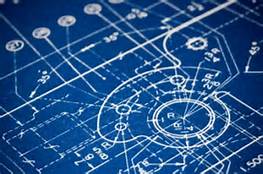 |
Facts
Duration: 1 semester
Period: Spring Semester
Credits: 4 ECTS
Contact Hours: 32
Self-study: 112
Hours: 144
|
Main Objectives
The object of the course “Systems engineering” is to study new approaches of qualitative systems theory based on the system analysis of conditions of data engineering, mechanisms of working and development of systems, methods and models of systems theory etc, and as a result to develop skills of systems thinking by students and to prepare them for practical problem solution of analysis and system synthesis.
Learning Outcomes
As a result of studying the course a student must:
know:
- methodology of systems approach;
- basic approaches by system description of economic analysis;
- basic scale types of measuring in systems;
- figures and assessment criterion of complex systems;
- basics of administrative control system development;
- basic components of mathematic predicting modeling and system identification theories;
be able to:
- complete the tasks of complex systems analysis and simulation with help of mathematic methods;
- execute a system-analysis method against practical tasks solving and complex systems synthesis.
be master of:
- analysis and complex systems synthesis methods;
- mathematic models development methods for information systems.
Professor
Stanislav V. Shidlovskiy
Course annotation
|
Course unit code |
||||||||||||||||||||||||||
|
Course unit title |
Systems engineering |
|||||||||||||||||||||||||
|
Name(s), surname(s) and title of lecturer(s) |
Professor Shidlovskiy Stanislav V. |
|||||||||||||||||||||||||
|
Level of course |
1 |
|||||||||||||||||||||||||
|
Semester |
2 |
|||||||||||||||||||||||||
|
ECTS credit |
4 |
|||||||||||||||||||||||||
|
Working hours |
Contact hours |
32 |
||||||||||||||||||||||||
|
lectures |
12 |
|||||||||||||||||||||||||
|
recitations and practicals |
20 |
|||||||||||||||||||||||||
|
Self-study |
112 |
|||||||||||||||||||||||||
|
Total |
144 |
|||||||||||||||||||||||||
|
Work placement |
- |
|||||||||||||||||||||||||
|
Prerequisites |
To the course study is necessary knowledge in the following courses: «Higher mathematics», including linear algebra, «Theory of probability and Mathematical Statistics», «Computer science». |
|||||||||||||||||||||||||
|
Language of instruction |
English |
|||||||||||||||||||||||||
|
Objectives of the course |
Learning outcomes |
A student’s assessments methods |
||||||||||||||||||||||||
|
Teaching methods |
During the course study are used not only traditional techniques, kinds and methods of education, but also innovative techniques, active and interactive kinds of lessons: lectures, laboratory practicum, tutorials, individual and research work, lectures with components of problem representation, tests, solving of the cases, discussions. |
|||||||||||||||||||||||||
|
Course unit content |
Course objective – The object of the course “Systems engineering” is to study new approaches of qualitative systems theory based on the system analysis of conditions of data engineering, mechanisms of working and development of systems, methods and models of systems theory etc, and as a result to develop skills of systems thinking by students and to prepare them for practical problem solution of analysis and system synthesis. Gained knowledge and skills – As a result of studying the course a student must: know:
be able to:
be master of:
|
|||||||||||||||||||||||||
|
List of Topics |
Topic title |
Contact hours |
Assignments and independent study hours |
|||||||||||||||||||||||
|
Part 1. Basic principles of systems theory and system analysis. Introduction. Systems approach. Basic ideas of systems theory. The concepts of complex system and large system. Features of systems analysis tasks. Features of system analysis steps. Building of complex system models. Simulation modeling – method of system study. Theory of similarity – methodology of reasons for models use. Experimentation – means of model building. Parametric methods of experimental information processing. The rise of reliability of estimate. Nonparametric analysis methods of statistic information. Collection, analysis and estimation of system parameters at conditions of insufficient information. Optimization method by system analysis. Numerical methods by system analysis. Selection or decision making. Rational and optimum decisions. |
10 |
33 |
||||||||||||||||||||||||
|
Part 2. Systems building. System life cycle. Main phases of life cycle. International standards of system life cycle. Processes of system engineering. Strategy of workflow (workflow). Simulation of workflow by Petry nets. UML. Risk assessment by creating and system implementation. Specification of a system. System establish requirements. Requirements list. Systems engineering. Systems architecture. Description of complex systems. Evolving the systems. Decision making support. System verification. Attachment, test execution and assessment of system performance. CASE-technology. CAD-, CAМ-, CAE-, ERP-systems. The concept of system efficiency. |
22 |
79 |
||||||||||||||||||||||||
|
Assessment requirements |
Maximum semester rating - 100 points. Points are allocated on the semester part and the exam ones: 80 points are available for the ongoing work of the semester, and 20 points - for the answers on the exam. |
|||||||||||||||||||||||||
|
Assessment criteria |
Activity at the seminars - up to 30 points, report on the independent work – up to 50 points, exam – up to 20 points |
|||||||||||||||||||||||||
|
The composition of final accumulative mark |
|
|||||||||||||||||||||||||
|
Author of the course |
Shidlovskiy Stanislav V., professor of the Department of Quality Control of the Faculty of Innovative Technologies, Tomsk State University |
|||||||||||||||||||||||||
.png)